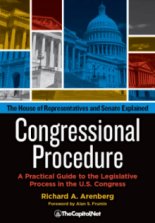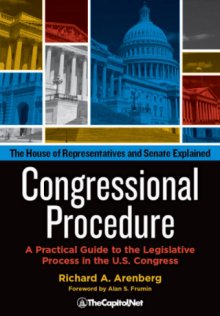Joint Resolution (CongressionalGlossary.com)
From the Congressional Glossary – Including Legislative and Budget Terms Joint Resolution A joint resolution, designated H.J. Res. or S.J. Res. Requires the approval of both houses and the signature of the president, just as a bill does, and has the force of law if approved. There is no practical difference between a bill and … Read more





